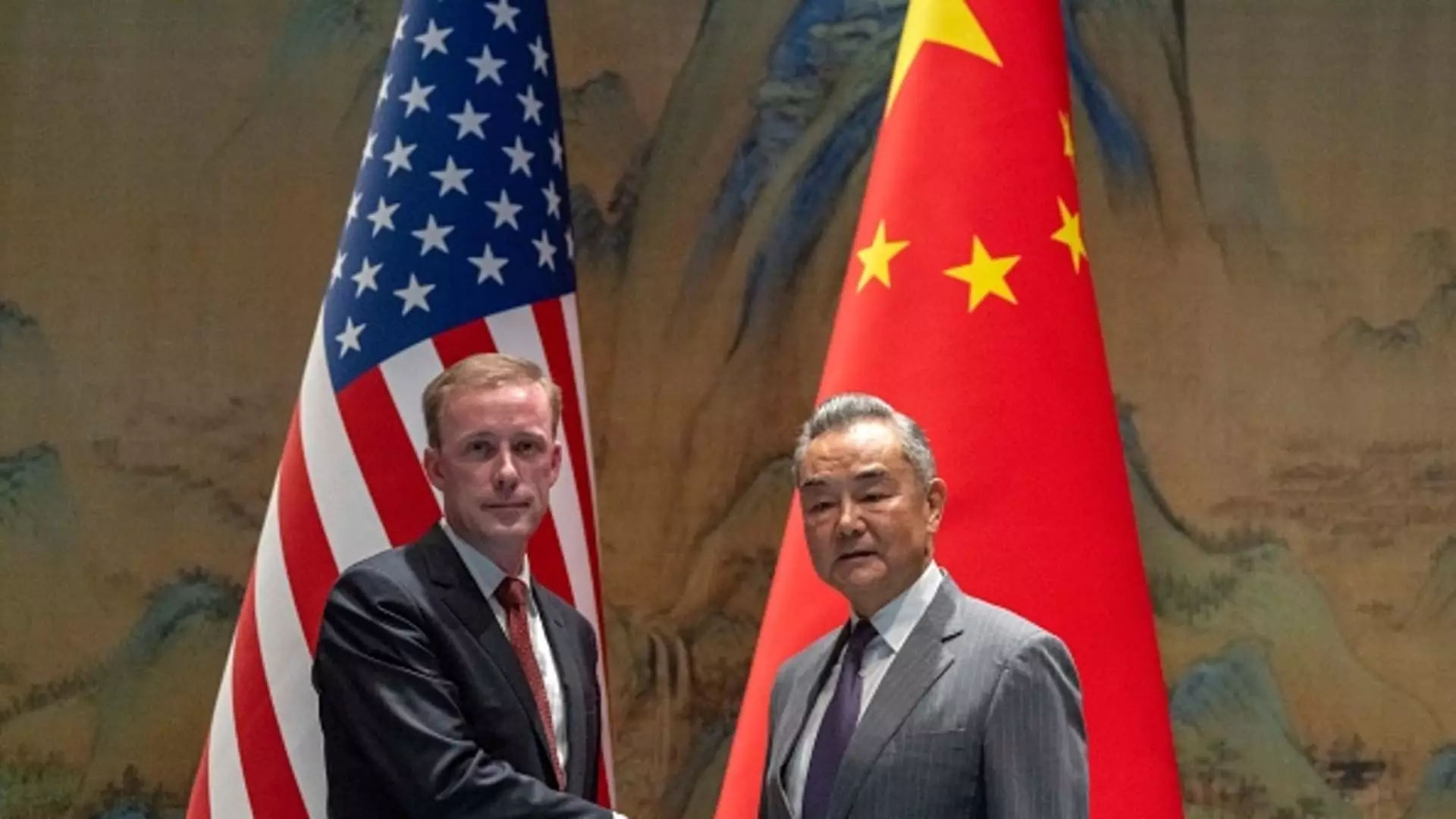The White House announced that U.S. President Joe Biden and Chinese President Xi Jinping are scheduled to speak over the phone in the near future. This move comes as U.S. national security adviser Jake Sullivan visits Beijing to meet with Wang Yi, China’s top diplomat. In addition to the presidential phone call, both sides have also agreed to a call between their military leaders. Plans for the second round of U.S.-China talks on artificial intelligence are also in progress, indicating ongoing efforts to address key issues.
Official readouts of Sullivan’s trip to Beijing highlighted the continued divergence in positions held by the U.S. and China on various issues. These include disagreements on tech restrictions, the status of Taiwan, activities in the South China Sea, and the situation in Ukraine. Both nations seem to be maintaining their established stances, signaling potential challenges in finding common ground during future discussions. The lack of significant progress on these fronts could contribute to ongoing tensions between the two countries.
The upcoming phone call between President Biden and President Xi follows a previous conversation that took place in early April. High-level communication between the United States and China has been complicated in recent years due to a combination of heightened tensions and the impact of Covid-19 restrictions. Notable events, such as Speaker of the House Nancy Pelosi’s visit to Taiwan and the subsequent “balloon incident,” have further strained diplomatic relations between the two nations. These incidents have led to disruptions in planned talks and added to the challenges of maintaining a constructive dialogue.
Sullivan’s visit to Beijing represents a significant step in U.S.-China relations, particularly as it marks his first trip to China as national security adviser. The discussions held during this trip could set the tone for future interactions between the two countries. The fact that the last official trip to China by a U.S. president’s national security adviser occurred in 2016 underscores the importance of such engagements in strengthening diplomatic ties. The current bipartisan consensus on adopting a tough stance towards Beijing adds another layer of complexity to the relationship, especially in the context of the upcoming presidential election.
The upcoming phone call between Presidents Biden and Xi, along with the recent interactions between U.S. and Chinese officials, highlights the ongoing challenges in their bilateral relationship. The persistence of divergent views on key issues and the history of tensions between the two countries underscore the complexity of finding common ground. Moving forward, effective communication and diplomatic efforts will be crucial in navigating the intricacies of U.S.-China relations and addressing the various challenges that lie ahead.

